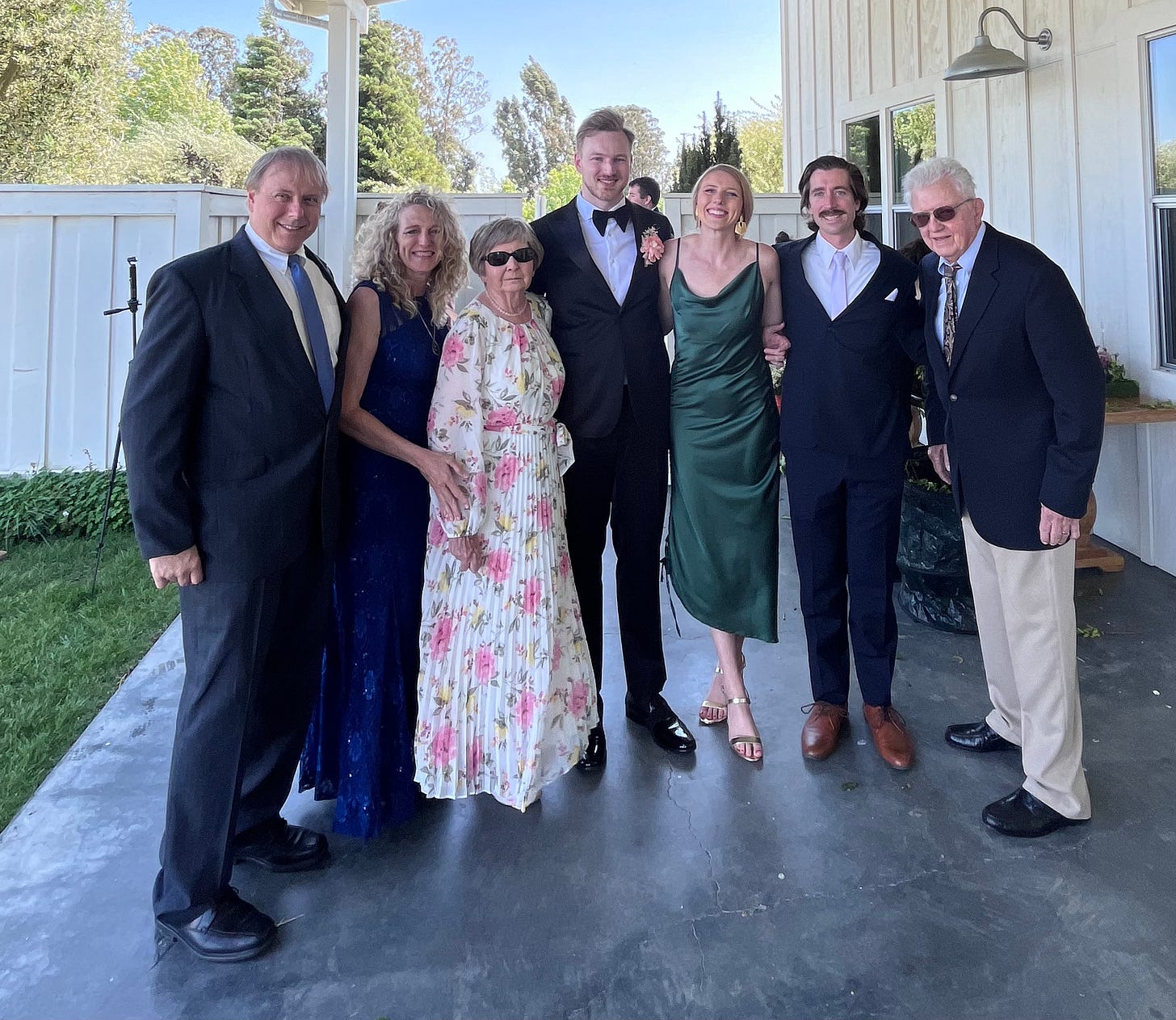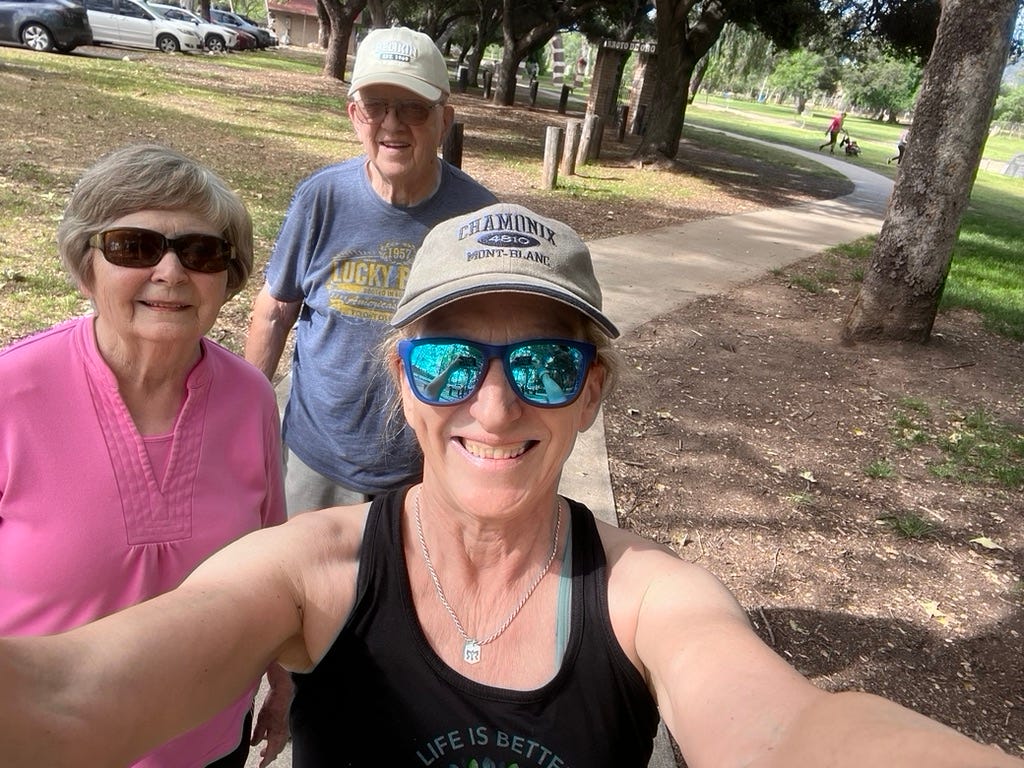A father to the fatherless, a defender of widows,
is God in his holy dwelling.
God sets the lonely in families (Psalm 68: 5-6)
This Sunday is Father’s Day.
I’m very lucky to still have my dad around. He’s awesome. He and my mom got to be at my son’s recent wedding. What a gift, to have three generations celebrating together.
On Father’s Day, I honor my dad, who is kind, generous, wise, fun. He loves me well and always has. I know I’m lucky to have amazing parents.
On a recent trip to Yosemite with my parents.
But on Father’s Day, I also think of those who are fatherless. I think of this verse. Is God a father to the fatherless? Does God defend widows? The metaphor of a father evokes thoughts of a protector, provider, advocate. It seems in our world today, there are a lot of widows and orphans and lonely people who need all of that.
I noted that this verse also says, “God sets the lonely in families.” The footnote in the NIV says this phrase can also be translated “he sets the desolate in a homeland.” Wow. It’s almost like God cares about immigrants, refugees, and safe resettlement.
Two things: this reminds us of the subjectivity of translation, and just how fraught interpretation of an ancient text in another language can be. Is this poetry, written more than 3000 years ago, simply a metaphor for spiritual belonging? Or is it an invitation to provide practical help to the poor? To advocate for and protect them? (In the ancient world, being a widow or fatherless meant you were destitute.)
Or—what if—helping the poor is a way to experience spiritual belonging? What if this verse is not just a “thoughts and prayers” kind of thing, but an invitation for us to partner with God in welcoming?
How do you experience the love of God? Maybe it’s just a warm feeling in your heart. Maybe you feel God’s loving presence when you’re in a beautiful setting, admiring the splendor of creation. Maybe the words of Scripture or a worship song move you in a way that feels like love, or a wave of positive emotions.
But I would also bet that you feel loved when someone, another human being, treats you with love by providing practical help or even just a listening ear. What if God flows love through people, and what if the kindness of others (even if they are unaware of it) ultimately comes from God?
Photo by Alex P: https://www.pexels.com/photo/
And—radical thought, but stay with me—what if we experience God’s presence when we love others? Especially those who are lonely, i.e. separated from love? What if the antidote for our own loneliness is to reach out to others who are lonely? What if giving love allows us to experience love? And if God is love, then welcoming is a path to God’s presence. Giving love is how we receive it.
I have to say, this has been my experience. When I welcome others, when I include the lonely and offer kindness and hospitality to those in need, I feel loved. When I come alongside people in need, I am mysteriously filled with a satisfying awareness of God. In giving, I receive.
The Bible also invites us to love our neighbors as ourselves. What would that look like? What if this ancient poem from the Psalms tells us what God is like, but also invites us to imitate God? To be the hands and feet of divine love?
What if this weekend, when we honor fathers, we also remember the fatherless? Those who have lost their fathers or never really knew them. Those who suffer the pain of abandonment or loneliness.
How can you welcome the fatherless and the widow? How can you set the lonely in families? What if that is how God does it? Through us?
You likely know someone who is “fatherless.” Perhaps their dad has passed away. Or they are estranged from their father for any number of reasons. Or maybe their dad abandoned them long ago. What if you welcomed that person—by sharing a meal, or even just sending an encouraging text or phone call?
Maybe you are fatherless. Maybe there is a wound that this weekend pokes at. But what if the way to ease that pain is to welcome others? To let love flow through you?







Thanks, Keri, for your beautiful writing. This verse became extremely important to me after my husband died in 2020. I also feel loved when I am giving love to others. It truly is better to give than to receive. - (J.) Faith Gallup
An excellent and thoughtful post...as always.